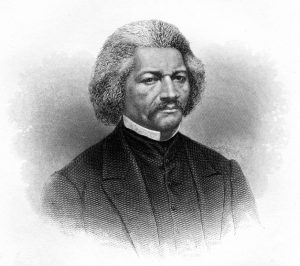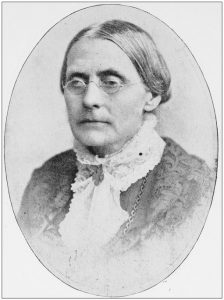The Abolitionist and the Suffragist
When studied as isolated events, history may seem a bit boring. But Studies Weekly helps you bring history to life by making connections between people and events.
History can be very exciting and energizing when looked through the eyes of those who lived it. They had families, friends, and social networks just as we have today. They didn’t know how things would turn out, but made decisions and actions according to the knowledge they had at the time.
In these Connections articles, we will share additional information for people and/or events introduced in the Student Edition, to help you show students the connections between the people and events they are learning about.
The Abolitionist and the Suffragist
“The world does not need to be told who Frederick Douglass was, or why he lived. So long had he stood as a synonym for human enfranchisement, so thoroughly had he been identified with the effort for its achievement, that to speak his name was to give an epitome of the anti-slavery struggle in the United States.” — Helen Pitt Douglass, In Memoriam Frederick Douglass, John C Yorston and Co. Publishers 1897
Frederick Douglass, the great orator, spokesperson and symbol of abolitionism and enfranchisement of African American men, died on February 20, 1895. Earlier that same day, he’d spent some time at the Triennial Session of the Women’s Council, where his friend, Susan B. Anthony escorted him to the speaker’s platform and sat beside him.
While living in Rochester, New York in the 1850’s, Douglass became friends with Daniel Anthony, Susan’s father. Mr. Anthony often invited him and their friends, William Lloyd Garrison and Wendell Phillips, to his home to discuss reformation. Susan also participated in these discussions on slavery, women’s rights, and temperance. These discussions strengthened her belief that women had to gain civil rights before any real changes could be made. It would take Anthony’s undying strength to make this happen.
Douglass also believed in equal rights for all people. In 1867, he is on record as saying: “I am here to advocate a genuine democratic republic; keep no man from the ballot box or the jury box or the cartridge box, because of his color – exclude no woman from the ballot box because of her sex.”
When legislators proposed adding the 15th amendment, which would give Black men the right to vote, Anthony urged Douglass not to support it, because voting rights for Black men wasn’t enough; women needed to be included. Douglass judiciously considered the impact of withdrawing his support, but voting rights for Black men had a real chance of happening, whereas universal suffrage for black men and white women did not have the political backing or votes to make it happen. If he withdrew his support, Black men would lose this chance to gain suffrage.
After consideration, he told Anthony, “You women have representatives. Your brothers, and your husbands, and your fathers vote for you, but the black wife has no husband who can vote for her.”
After the 15th amendment was ratified, Douglass returned to publicly supporting the women’s rights movement in 1871, but he and Anthony’s friendship was now strained. As they continued their work on different political platforms, Anthony disagreed with him publicly as well as privately.
As the years went on, their icy friendship gradually warmed, and they began again to work together in the fight for equality. Anthony made sure to include Black women in the suffrage movement. On the day of Douglass’ death, Black women spoke at the Triennial Session of the Women’s Council, and 16 delegates from the National Colored Women’s League attended.
Upon news of Douglass’s death, Anthony publicly mourned her friend. At his funeral service, she read a tribute written by Elizabeth Cady Stanton.
“Frederick Douglass is not dead!” Anthony said. “His grand character will long be an object lesson in our national history; his lofty sentiments of liberty, justice and equality, echoed on every platform of our broad land, must influence and inspire many coming generations!”
This tribute to Douglass alienated chapters of the National Suffrage Association, but Susan B. Anthony did not care. She continued to work tirelessly for her beliefs, just as her friend Frederick Douglass.
References:
In Memoriam Frederick Douglass. John C. Yorston & Co. (1897).
Many Roads to Freedom: Frederick Douglass’ Funeral in Rochester. Monroe County Library System. Library Web.
Encyclopedia of World Biography. Susan B. Anthony Biography.
Fraught friendship: Susan B. Anthony and Frederick Douglass (U.S. National Park Service). National Parks Service. U.S. Department of the Interior.


